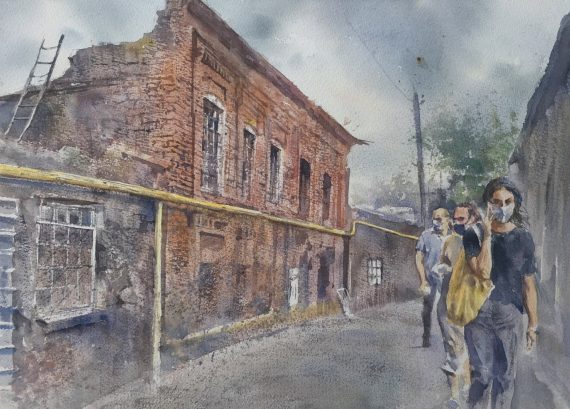
by Mari Chakryan, Local Correspondent from Armenia
Most governments responding to the coronavirus (COVID-19) pandemic have declared a state of emergency and adopted a number of measures to combat the spread of the virus, which have often included restrictions on the freedoms of assembly and movement. Meetings and gatherings have been cancelled, certain activities of public institutions have been suspended, making services available online. Hence, there has been an impact on procedural rights of public access to information, participation in decision-making. The Aarhus Convention Secretariat has also raised this issue.
During the state of emergency, issues not related to the pandemic have started to be discussed and adopted without reporting in the Armenian Government, thus limiting the opportunity for wide public awareness and public influence on decision-making with regard to various projects and plans.
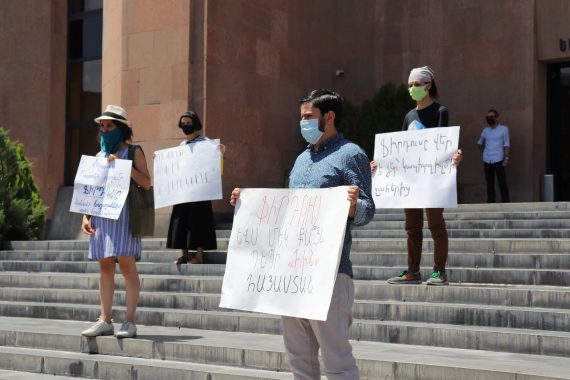
A vivid example of this is the adoption of an amendment to the Law on Freedom of Information based on the initiative of the Ministry of Environment during quarantine, which is nothing more than a restriction on information related to environmental issues. It was criticized by sectoral NGOs, EaP National Platform responded with a statement, urging the National Assembly not to adopt the bill. As a result, the National Assembly postponed the voting for 2 months.
Since the 2018 revolution, the civil society has been voicing the need for radical reforms in the sectors of regional development and urban planning. The situation became especially grave when it was decided to allow a number of activities, including construction during the state of emergency declared due to the coronavirus pandemic. And this was done at a time when assemblies and public events of that format are still banned.
The civil society was again forced to make a statement, pointing out that in these conditions, a favorable situation has been created for the developers to carry out illegal activities freely and without hindrance. The public called on the Government of the Republic of Armenia and local self-government bodies to reconsider their approaches and to undertake radical reforms in the field of urban planning as soon as possible.
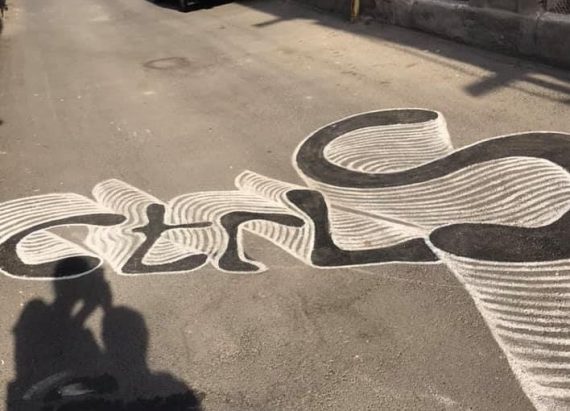
Recently, the defenders of the heritage of Yerevan had to gather near the Yerevan Municipality, where, under pressure from the civil society, a joint special session dedicated to the fate of Yerevan’s 33rd District (Firdus) was convened on the initiative of the Council of Elders. Following the instructions of the Commandant, the participants of the protest kept a social distance and wore personal protective equipment. Since they are law-abiding citizens, they were forced to leave the area soon following the urge by the Police. However, the issue has not yet received a desirable solution. One of the structures built in the area at the end of the 19th century has already been demolished, and the struggle for the fate of the other is in progress.
In this period, amendments were made to the Judicial Code, which again did not go through a wide public debate, not even a virtual discussion.
I spoke to Lousineh Hakobyan, the National Coordinator of the EaP CSF, about the restrictions for civil society in making participatory decisions during the pandemic. In her words, the Judicial Code was a regression from the expectations of the civil society with regard to judicial reforms, but it is not too late, as responding to the demand of the civil society, the Ministry of Justice has expressed willingness to discuss and review the problematic points.
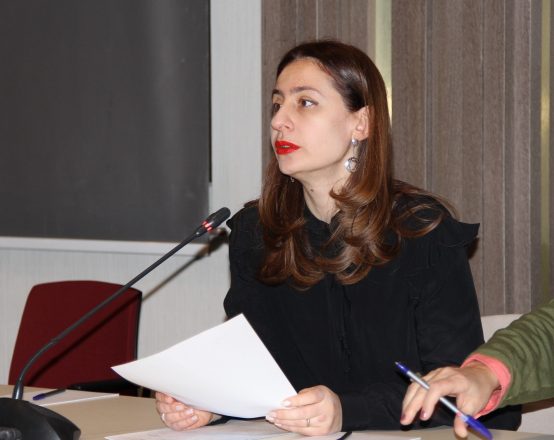
In general, in Mrs. Hakobyan’s opinion, the situation caused by the pandemic has a negative impact on many areas, especially the normal functioning of the civil society, as the processes have slowed down. For instance, the Steering Committee of the EaP Forum holds 4 meetings a year, which are very effective in terms of planning and organizing the works, but this year due to the pandemic there were travel restrictions and so an online meeting was held later at the end of May.
Lousineh Hakobyan: The situation with the coronavirus was a serious challenge for the Government of Armenia. The Government was new, unprepared, had no experience in public administration.
EaP Local Correspondent: Were there decisions that contained restrictions on the exercise of human rights?
Lousineh Hakobyan: Yes, for instance, publications that caused panic were declared unacceptable at the beginning, and this has become the subject of debate among professional circles. Restrictions on freedom of speech have been imposed, which, of course, has both objective and subjective reasons.
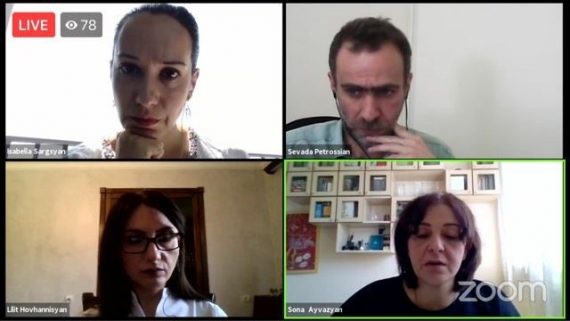
EaP Local Correspondent: Are the existing digital tools of public participation sufficient to ensure proper participation?
Lousineh Hakobyan: Some time ago, I might have said “no”, but you can also benefit from this situation, for example, by paying attention to the written format. Spoken words are often said and gone, while now everything is being documented, and that is an advantage. And besides, the meetings and discussions can be held remotely, which saves resources.
EaP Local Correspondent: What purpose will the EaP CSF savings serve? Will they be directed at empowerment of civil society and participatory administration?
Lousineh Hakobyan: We have received interesting suggestions from working groups. For example, to study the pandemic-related impact on the key areas of the EU-Armenia dialogue, on the basis of which proposals will be made to improve the situation. There is no study on how NGOs have suffered or what support they need. This is also part of our upcoming plans.
References:
- EaP CSF Armenian National Platform’s statements
- Statement by NGO’s on the need for radical reforms in areas of regional development and urban planning
- Committee for the Protection of Yerevan’s Heritage’s Facebook page
- Media center
- UNECE Executive Secretary’s Blog, “Environmental democracy in times of COVID-19”
This article was produced by Mari Chakryan, the Project’s local correspondent and EaP Civil Society Fellow from Armenia in the framework of the EU-funded ‘Eastern Partnership Civil Society Facility – Regional Actions’ Project. Its contents are the sole responsibility of Mari Chakryan and do not necessarily reflect the views of the European Union or the Project.
Read more about our local correspondents here.




